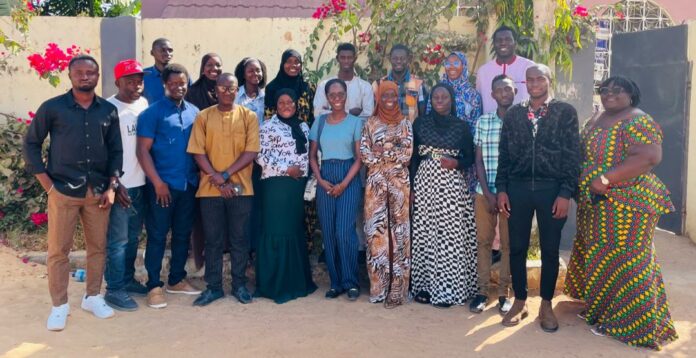By: Dawda Baldeh
In their efforts to combat fake news, misinformation, disinformation, and hate speech, the Media Academy for Journalism & Communication (MAJaC), with funding from UNESCO, kicked off a three-day training on advanced fact-checking and verification for twenty-five (25) journalists on Monday.
This training, taking place at MAJaC and funded to the tune of twenty thousand dollars ($20,000), aims to equip journalists with advanced fact-checking and verification skills. Meta Touray, the Project Manager, explained that the training’s objective is to boost journalists’ capacity to combat fake news and change trending narratives to ensure the public receives reliable and accurate information. “The media has a role in disseminating accurate news by combating fake news,” she said, noting that MAJaC has trained over 46 journalists who are now fact-checkers in the past years.
This initiative aligns with the principles of the International Fact-Checking Network, aiming to combat fake news. “The training will combine theory and practical aspects to enable the participants to gain the requisite knowledge and skills for fact-checking,” added Madam Touray.
James Badjie, representing the Managing Director of MAJaC, hailed the partnership between the school and UNESCO, emphasizing its importance in upholding democracy through quality journalism and ethical standards. He commended UNESCO for its support, stating that it would significantly contribute to the collective mission of combating fake news, which negatively impacts journalists’ work.
“The pursuit of truth is a crucial responsibility for every journalist, and combating fake news is necessary,” Badjie said, challenging the participants to make the best use of the training, share the knowledge gained, and implement skills to enhance the image of all journalists.
Modou Joof, the Secretary-General of the Gambia Press Union (GPU), expressed pleasure in associating with such an important training. “Fact-checking is a vital skill for every journalist,” Joof emphasized, noting that the training would strengthen journalists’ capacity to tackle fake/false news. He cited the work of Fact-Check Gambia during the 2021 presidential election, which played a crucial role in ensuring a free, fair, and transparent election.
Joof explained to attendees that fact-checking differs from everyday journalism reporting but clarified that it is a simple yet impactful process. Meanwhile, Ngenarr Yassin Jeng, UNESCO representative, expressed appreciation for the partnership, underscoring the significance of strengthening the institutional capacity of media and CSOs to uphold democracy and the rule of law.
Jeng reiterated UNESCO’s unwavering commitment to supporting journalists and Civil Society Organizations (CSOs), emphasizing their role in observing the principles of democracy and the rule of law. She expressed optimism that the training would yield dividends and urged participants to take it seriously.
The training will expose participants to various fact-checking tools and websites to aid in the fight against the spread of fake news. At the end of the training, participants are expected to pitch story ideas and will be provided with reporting grants to produce fact-check reports.




